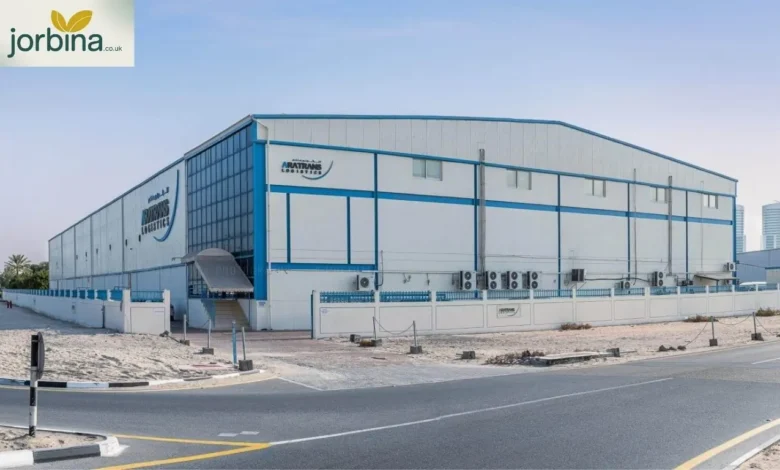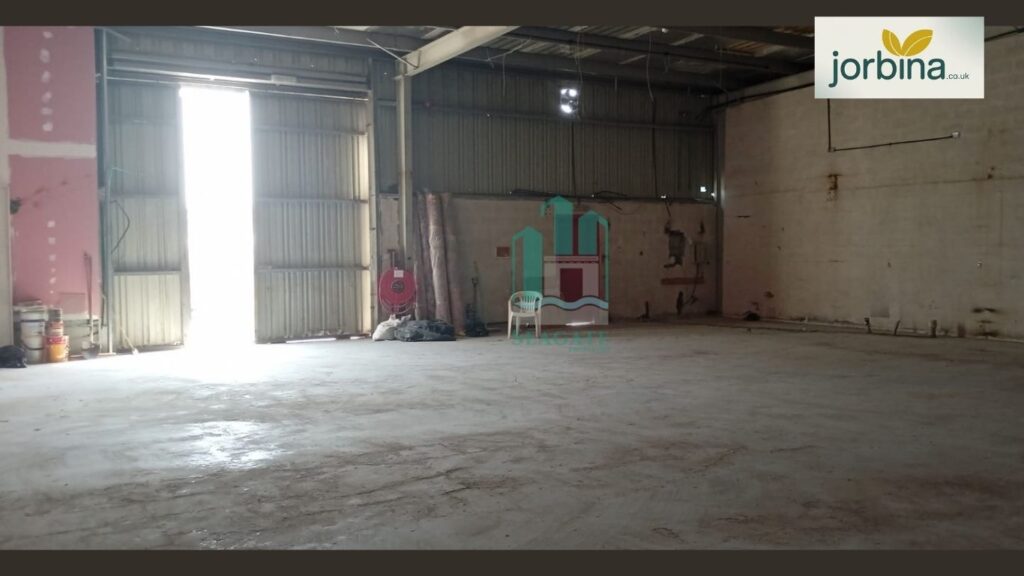Find the Perfect Warehouse in Dubai for Your Business

Have you ever considered how much a warehouse can influence your company’s success in Dubai? It may seem like a large storage area, but it’s actually the centre of operations, distribution, and logistics. The proper warehouse keeps your company operating efficiently in addition to storing goods. So, how do you choose the best one? Let’s go through it from beginning to end.
Understanding What Kind of Warehouse You Need
Before rushing into rent or purchase listings, take a moment to understand what your business really needs. Are you storing perishable items that require climate control? Do you deal with bulk goods that need easy loading access? Maybe you’re in e-commerce and want a flexible setup for rapid dispatch. Each case demands a different type of warehouse in Dubai.
Start by mapping your workflow, receiving, storage, order picking, and dispatch. Once you visualise this, you can match the warehouse type to your operations. For example, a company dealing with high turnover stock would need wide aisles and automated picking systems. That’s why logistics managers everywhere are exploring automation solutions like Matflo, which integrates smart warehouse management tools to cut down errors and speed up operations.
Warehouse in Dubai for Rent

If you’re not ready for a long-term investment, renting makes sense. Dubai offers a wide variety of rental warehouses spread across industrial zones like Al Quoz, Ras Al Khor, Jebel Ali, and Dubai Investment Park (DIP). Prices vary depending on location, accessibility, and specifications. On average, warehouse rentals range from AED 12 to AED 70 per square foot per year.
Cheaper options are available farther from the city centre, while premium warehouses closer to ports or main highways command higher rates. When comparing, focus on ceiling height, power capacity, and the condition of loading docks. A warehouse may look affordable on paper, but it comes with hidden costs if it lacks insulation, security, or easy access for heavy vehicles.
Another tip: always inspect the facility in person. Many warehouses are marketed with generic photos, and conditions can vary widely. Don’t rely solely on online listings; walk through the property, check utilities, and ensure the space fits your logistics plan.
Warehouse in Dubai for Sale
If you’re in it for the long haul, buying might be smarter. Owning a warehouse gives you control, long-term stability, and potential appreciation in value. Industrial properties in zones like Jebel Ali, DIP, and Dubai South are in high demand. Prices depend on size, infrastructure, and proximity to key transport routes.
Ownership comes with extra responsibilities, registration fees, maintenance, insurance, and sometimes service charges. But if your business relies heavily on warehousing, these costs can pay off. Consider buying in a free zone if your operations involve imports and exports. The tax advantages and streamlined customs procedures often offset higher purchase prices.
When purchasing, check the build quality, ceiling height, and access points. Think about future scalability, too. It’s better to have room to grow than to outgrow your space too soon.
Small Warehouse in Dubai
Not every business needs a massive facility. Many small enterprises, retailers, and startups look for compact spaces, say 1,000 to 5,000 square feet, that still provide security and efficiency. A small warehouse in Dubai is perfect for e-commerce sellers, last-mile delivery hubs, or as an overflow storage area.
You can find small units in Al Quoz or Ras Al Khor, often priced more affordably than the large industrial ones. These compact warehouses typically offer basic facilities: roll-up shutters, small offices, and sometimes limited yard space. Before signing, confirm if the area allows your type of business activity—some zones have restrictions.
When running smaller operations, focus on layout and inventory systems. Optimising a small space takes smart planning. Automated inventory tools can be a huge help here, something even small business owners can explore through Matflo’s modular logistics solutions.
Dubai Maritime City and Its Role in Warehousing
If your business is related to marine services, shipping, or offshore logistics, Dubai Maritime City (DMC) deserves attention. Located between Port Rashid and Dubai Drydocks, this area was built specifically for maritime businesses. Warehouses here cater to marine equipment, ship repair, and logistics companies.
The Dubai Maritime City Authority manages regulations, ensuring compliance with safety and environmental standards. Warehouses in this zone are typically larger and built with specialised layouts to handle marine materials or bulky spare parts. The proximity to the docks gives businesses in DMC a huge advantage in turnaround time and cost efficiency.
Another plus, DMC’s infrastructure is designed for heavy operations. You get advanced utilities, high-load flooring, and round-the-clock security. It’s a perfect choice for marine suppliers, shipping service providers, or companies that depend on port access.
Warehouse in Dubai Careers

Warehousing is one of the largest employment sectors in the city. From forklift operators to logistics coordinators, there’s a wide range of opportunities. The growing demand for e-commerce and global trade has created consistent job growth in this field.
A warehouse worker in Dubai typically earns between AED 2,600 and AED 4,000 per month, depending on the company and experience. Supervisors and warehouse managers earn much more, usually around AED 10,000 to AED 12,000 monthly. Those working in specialised zones like Dubai Maritime City often receive additional safety and technical training.
Warehouse jobs aren’t just manual labour. Many roles now involve managing software systems, barcoding, and inventory tracking. With automation spreading fast, technical skills are becoming just as important as physical ability.
What Affects the Cost of a Warehouse in Dubai
Several factors determine how much you’ll pay for a warehouse. Location comes first—closer to ports and highways means higher prices. Facilities with strong power loads, tall ceilings, and temperature control also cost more.
Then there’s access. Easy truck entry, ample parking, and 24-hour accessibility can add a premium. Some warehouses also offer shared logistics services, like forklifts, on-site offices, and maintenance crews.
Finally, consider the reputation of the developer and zone management. Areas managed by established authorities, like DMC or JAFZA, generally have stricter quality standards, which can protect your investment.
How to Choose the Right Warehouse
Finding the right warehouse in Dubai is a process. Here’s how to go about it:
- Define your needs. Start with your inventory type, turnover rate, and handling requirements.
- Set your budget. Factor in not only the rent or purchase price but also utilities, staffing, and insurance.
- Pick your location. Balance accessibility, transport links, and cost.
- Inspect in person. Photos can’t show everything; walk the space before you sign.
- Check the regulations. Free zones and maritime areas have unique rules. Make sure your operations fit.
- Negotiate wisely. Don’t settle for the first price you hear. Compare multiple options and ask for flexible terms.
Renting vs Buying
Each has pros and cons. Renting gives flexibility. You can scale up or down easily as your business evolves. It’s ideal for startups or companies testing the market. Buying, on the other hand, offers stability. You build an asset and avoid yearly rent increases. It suits businesses confident in their long-term operations.
For many companies, a mix works best, renting one facility while developing another for future ownership. It’s a way to stay agile while planning.
FAQs
How much does a warehouse cost in Dubai?
It depends on size and location. Renting can range from AED 12 to AED 70 per square foot per year. Buying costs vary widely, but construction estimates for new facilities range between AED 1,200 and AED 2,000 per square metre, depending on specifications.
How much do warehouse workers get paid in Dubai?
On average, warehouse workers earn between AED 2,600 and AED 4,000 monthly. Those in specialised or supervisory roles earn higher wages, especially in ports or free zones.
What is the salary of a warehouse manager in Dubai?
Warehouse managers typically earn AED 10,000 to AED 12,000 per month, though some larger operations pay more. The salary depends on experience, certifications, and the size of the facility.
What do warehouse workers do in Dubai?
Their main tasks include receiving goods, checking inventory, packing orders, operating machinery, and maintaining safety standards. In maritime zones, roles may involve handling marine tools or spare parts under strict regulations.
How much would a small warehouse cost?
A small warehouse in Dubai, around 1,000 to 5,000 square feet, can be rented for AED 25 to AED 40 per square foot annually. Costs increase if the unit includes air conditioning or cold storage.
Bottom Line
A good warehouse in Dubai can transform your business. It’s not just about finding space—it’s about building efficiency, saving time, and supporting growth. Whether you rent or buy, think long term. Look for infrastructure, safety, and flexibility.
If your work ties to shipping or marine services, Dubai Maritime City offers one of the most strategic locations you can find. And if your focus is on logistics and automation, take a look at why everyone in logistics is talking about Matflo; it’s redefining how warehouses operate worldwide.
In the end, the perfect warehouse isn’t the one with the lowest price tag; it’s the one that fits your goals, supports your people, and helps your business move faster every single day.



